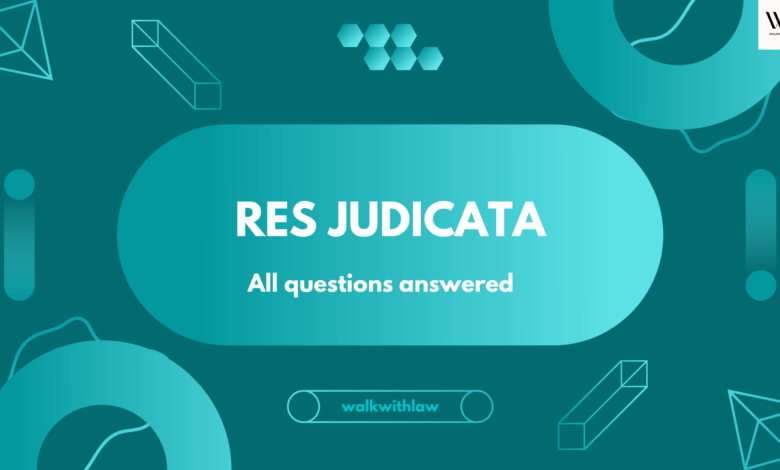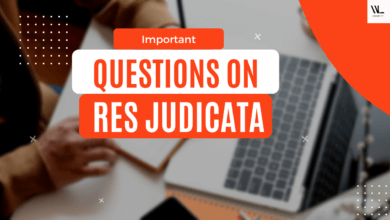
Res Judicata Explained: How This Doctrine Prevents Duplicate Litigation
Lesson on Res Judicata
Res judicata is a Latin term meaning “a matter already judged.” It is a legal doctrine that prevents parties from litigating the same issue more than once after it has been resolved by a competent court. The principle ensures the finality of judgments, promotes judicial efficiency and protects parties from being subjected to multiple lawsuits for the same matter.
Important maxims on on the Doctrine of Res Judicata –
- Nemo debet lis vexari pro una et eaden causa
- Interest republicae ut sit finis litium
- Resjudicata pro Veritate occipitur
- Ex captio res judicata
- Actus curae neminem gravabit
Elements of Res Judicata
- Final Judgment: There must be a final judgment on the merits by a court of competent jurisdiction.
- Same Parties: The parties in the subsequent action must be the same as, or in privity with, the parties in the original action.
- Same Claim or Cause of Action: The claim or cause of action in the subsequent action must be the same as that in the original action.

Types of Res Judicata
- Claim Preclusion : Bars the relitigation of the same claim or cause of action.
- Issue Preclusion (Collateral Estoppel): Bars the relitigation of specific issues that were actually litigated and necessarily decided in a previous action, even if the subsequent action is based on a different claim or cause of action.
15 Important questions on Res judicata
Examples of Res Judicata
“Final judgment means final! Learn how it protects you from repeated lawsuits.”
- Imagine a scenario where Alice sues Bob for breach of contract in 2020, and the court rules in favor of Alice, awarding her damages. In 2022, Alice sued Bob again for the same breach of contract. Bob can raise the defense of res judicata, arguing that the matter has already been adjudicated and should not be relitigated. The court is likely to dismiss Alice’s second lawsuit based on res judicata.
- X sued B over the partition of an ancestral property which was dismissed by the court. A further did not filed an appeal before the Appellate court. X, now wants to file another suit against Y on the same ancestral property. As per the doctrine X cannot do the same.
“Why does the law say ‘enough is enough’? Dive into the world of res judicata and find out!”
Case Laws on Res Judicata
- Federated Department Stores, Inc. v. Moitie, 452 U.S. 394 (1981): In this case, the Supreme Court of the United States held that res judicata bars not only the relitigation of claims that were actually raised in the prior suit nonetheless also somewhat claims that could have been raised. The court emphasized the importance of finality in judicial decisions.
- Parklane Hosiery Co. v. Shore, 439 U.S. 322 (1979): This case established the principle of offensive collateral estoppel, allowing a plaintiff to prevent a defendant from relitigating an issue the defendant has previously lost in another case against a different plaintiff. The court’s decision highlighted the role of issue preclusion in promoting judicial efficiency and consistency.
- Semtek International Inc. v. Lockheed Martin Corp., 531 U.S. 497 (2001): The Supreme Court clarified that the preclusive effect of a federal judgment is determined by the federal common law, which incorporates the law of the state in which the federal court sits unless a federal interest requires otherwise. This case underscored the interplay between federal and state law in the application of res judicata.
This is a fundamental doctrine in the legal system that promotes the finality of judgments, judicial efficiency, and fairness to parties. By preventing the relitigation of matters that have already been adjudicated, it ensures that legal disputes are resolved conclusively and consistently.
